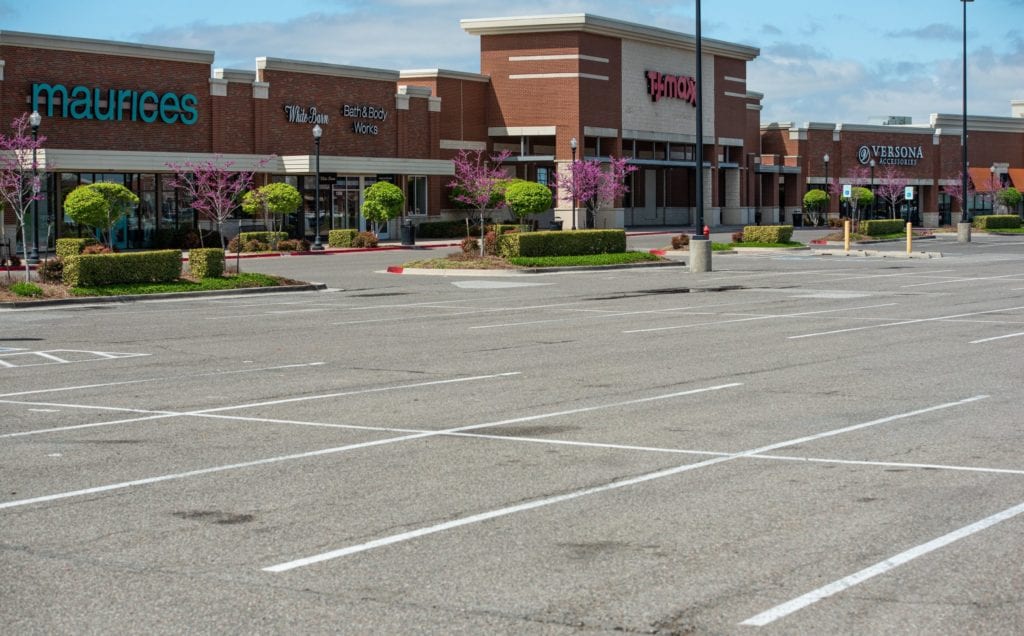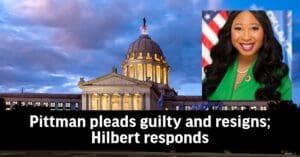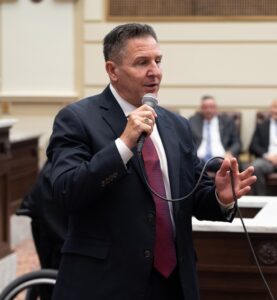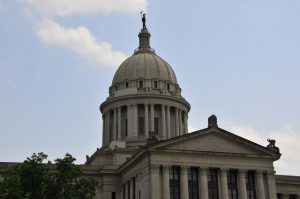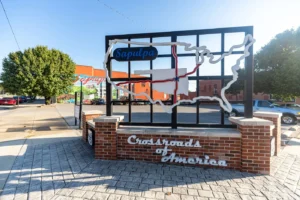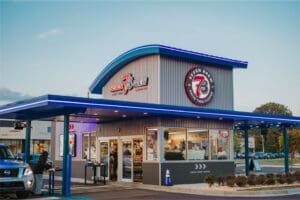by Kathryn McNutt, Oklahoma Watch

Each step taken by public officials to reduce the spread of the coronavirus in Oklahoma raises questions about what is banned and what’s just a recommendation.
Gov. Kevin Stitt issued orders Tuesday that include requiring vulnerable populations to stay at home until April 30 except for essential trips. He also ordered the closure of all nonessential businesses in the growing number of counties that have a confirmed case of COVID-19, lasting for 21 days beginning at 11:59 p.m. Wednesday.
Many cities in Oklahoma already had orders in place closing nonessential businesses. And 17 states, starting with California, have told residents who aren’t part of the critical workforce to stay at home except for necessary trips.
But what is a necessary trip? And what is an essential business?
Stitt said more details are coming soon. But if his executive order and cities’ proclamations are similar to other states’, including California’s, the definitions will be specific and itemized in some areas, and broad and undefined in others. There will be gaps, and room for interpretation.
For instance, what if a Norman resident who can easily work from home has a flat tire or a dead battery? Is a trip to a repair shop essential?
Are any of these essential businesses?
- A UPS or FedEx store.
- A pawn shop.
- A fabric outlet.
- A bicycle store.
- A veterinarian.
- A pet day-care business.
- A medical marijuana outlet.
- A liquor store.
- A bank building with tellers and loan officers but no drive-through.
- A cellphone sales or repair store.
- A swimming pool retailer.
- Auto dealers’ new- and used-car sales departments.
- A home construction company.
- A flower or card shop.
The answers for a number of those can be found in Gov. Kevin Stitt’s March 25 executive order, which outlines a wide range of sectors and activities as identified by the U.S. Department of Homeland Security.
In states like California and New York, which so far have been harder hit by COVID-19, there are lists of essential businesses or services. Those include grocery stores, pharmacies, certain health-care operations, hospitals, elder-care facilities, doctors’ offices and emergency dental care services. States’ lists also include services for mail or shipping, laundromats, building maintenance, child care, auto repair, funeral homes and news media. Additional essentials are financial institutions, food banks, homeless shelters, defense-related operations and their contractors, janitors, tech support, skilled trades and more.
In some states, like Delaware, furniture, clothing and office-supply stores are considered nonessential. Many of the national retail chains have already closed their stores and are inviting consumers to buy online. A number of Oklahoma cities have closed nail and beauty salons, tattoo parlors and barbershops.
One question is how cities or the state will enforce their orders.
On March 16 Oklahoma City ordered the closure of bars, shopping mall food courts and exercise and recreational facilities; it limited restaurants to takeout, curbside or delivery.
A violation would be a misdemeanor punishable by up to six months in jail and a fine of up to $750. But Oklahoma City police reported no tickets had been issued as of Monday.
“We’re going to do everything not to cite people,” Sgt. Brad Gilmore said. “It’s going to be on a last-resort basis.”
Norman updated its emergency proclamation Tuesday to include a stay-at-home order effective midnight Wednesday through April 30. It says Norman residents may leave their homes only to perform essential activities.
But that is not as restrictive as it sounds, said Annahlyse Meyer, chief communications officer.
“Interacting with an essential business is an essential trip,” Meyer said. “A lot more businesses and services are considered essential than people may think.”
Auto repair is one example. It is considered essential, so anyone going there for service is following the order, she said.
“We just ask people to limit where you go out and how you interact with others,” Meyer said.

Oklahoma’s health-care community urged the governor to attack the spread of coronavirus with tougher steps. In a letter issued Monday, 18 health care organizations called on Stitt to issue a shelter-in-place order immediately and close nonessential businesses statewide “until this pandemic is truly contained.”
“We appreciate what the governor is doing,” Oklahoma State Medical Association President Larry Bookman said after Stitt’s announcement Tuesday. “It’s a good step but it just doesn’t go far enough.”
Bookman said nonessential businesses should be closed for two weeks in all 77 counties, not just those where COVID-19 has been confirmed.
“If we get out ahead and restrict the disease, we won’t always be chasing it, which is what we’re doing now,” Bookman said.
In a news conference Tuesday, Oklahoma City Mayor David Holt downplayed the role of enforcement of the city’s restrictions.
“Keep in mind that most further steps will require your buy-in,” Holt said. “In a free society, the reality is that only you can force yourself to shelter in place. I wield a pen, not an army.”

